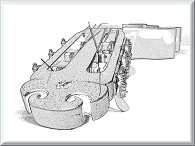Welcome to one of the most active flamenco sites on the Internet. Guests can read most posts but if you want to participate click here to register.
This site is dedicated to the memory of Paco de Lucía, Ron Mitchell, Guy Williams, Linda Elvira, Philip John Lee, Craig Eros, Ben Woods, David Serva and Tom Blackshear who went ahead of us.
We receive 12,200 visitors a month from 200 countries and 1.7 million page impressions a year. To advertise on this site please contact us.
|

|
|
Learning
|
You are logged in as Guest
|
|
Users viewing this topic: none
|
|
Login  | |
|

  
Ruphus
Posts: 3782
Joined: Nov. 18 2010

|
 Learning Learning
|
|
|
quote:
The best way to actually make sure that you learn a new skill is to go to sleep right after learning it, suggests a study published June 5 in Science.
While the study was done in mice, it might offer some insight about the long-observed connection between sleep and memory in humans.
People's memories and learning abilities suffer when sleep-deprived — contrary to the hopes of college students pulling all-nighters everywhere. But this is the first time that scientists have observed new learning-related brain connections forming during deep sleep.
They were able to see exactly how each new skill created a new pathway in the brain. And the study offers some evidence suggesting it might be important to sleep right after learning something new — instead of hours later.
A Departure From Previous Research
These results were unexpected.
Past studies have shown that learning a new skill strengthens internal connections, or synapses, between brain cells. But normally, researchers have seen that the number of synapses decreases during sleep, so they've theorized that there is some sort of "paring down" effect, where trimming the connections somehow allows the brain to store more information, according to an article by neuroscientists David R. Euston and Hendrick W. Steenland published alongside the study.
But those past studies generally did not look at the direct link between a specific set of new skills and sleep that followed immediately after, and in the new research, a team from NYU's Langone Medical Center observed something different than what had been seen before. If mice were allowed to sleep immediately after learning a new skill, the connections that showed learning in their brains continued to grow. But if they weren't allowed to sleep, their brains formed far fewer connections.
"Perhaps," Euston and Steenland suggest, "synapses that are forged during recent experiences undergo strengthening whereas synapses representing more distant memories undergo downscaling."
While sleep is known to be a time when you essentially clear the cobwebs accumulating in your brain, those hours are also crucial for storing new information and new pathways, letting you reinforce something you've just learned.
The New Experiment
The NYU researchers engineered mice to have a fluorescent protein in their brains so they could observe the growth of little spikes called dendrites on neurons, or brain cells. More of those dendrites mean more synapses, or stronger connections between neurons, which shows learning.
They taught the mice to run on a spinning rod, training them to keep their balance while running forward. Later, the researchers had them run forward again, or taught them a new trick: running backwards. With each new skill learned, a new pathway of brain connections was created.
This was significant because it showed that each new skill learned was associated with one particular new set of connections in the brain. "Imagine a tree that grows leaves on one branch but not another branch," said Dr. Wen-Biao Gan of NYU, one of the authors of the study, in the press release. "When we learn something new, it's like we're sprouting leaves on a specific branch."
The Effect Of Sleep
When the researchers repeated the experiment, they allowed some mice to sleep after the running lessons and forced others to stay awake another eight hours.
The sleep-deprived mice grew fewer new connections in their brains, and were less likely to keep any new connections they did form. (The researchers checked up on their brains 24 hours later.)
The mice who slept did much better. They continued to form new connections while sleeping, along the same pathway that was associated with their new skill.
What's more, the new connections seem linked to better skill retention.
When the mice were tested again — first one day later, and then again five days later — they all did better with their new tricks than they had the first time. But the performance improvement was twice as great in the ones who had slept (and formed more new connections).
In the article accompanying the study, neuroscientists Euston and Steenland note that this result suggests that sleep does more than solidify something that's been learned: It helps give it "staying power."
Even when the sleep-deprived mice were able to later sleep and receive an additional training session, they never formed as many neural connections related to that particular skill as the mice who had been allowed to sleep after learning the skill the first time.
What This Means
Although studies have suggested for some time that sleep helps crystallize memory, this is the first time that researchers have been able to see how that works. They think that the mice may have been able to form additional connections during sleep because they were able to sleep immediately after training.
Since the mice were tested on motor skills, it's too soon to say whether the results would hold for other types of learning as well. And since this is the first time this process has been shown, it will need to be replicated — ideally in humans. But the Science study suggests new avenues for investigation and will have important implications for researchers trying to understand the relationship between learning, memory, and sleep.
http://finance.yahoo.com/news/really-want-master-skill-bed-170605875.html
|
|
|
|
REPORT THIS POST AS INAPPROPRIATE |
Date Jun. 9 2014 8:11:16
 |
|

  
Ruphus
Posts: 3782
Joined: Nov. 18 2010

|
 RE: Learning (in reply to guitarbuddha) RE: Learning (in reply to guitarbuddha)
|
|
|
I agree. The experiment isn´t best thought through; aside of my dislike of animal experiments of interference anyway.
However, I suppose with the findings on neuronal matters, the result of this experiment would rather likely be confirmed under a meaningful humane experiment.
After all, it is no news that:
#
The unconscious will solve tasks if discharged directly from conscious charge into idle. Like in Simon´s above example of waking up with solutions, or the classical anecdote of Newton´s finding on gravitation law at a break under an apple tree.
( Which again in terms of self-development being why it seems helpful to engage in a positive "mantra" during fall-into or wake-from sleep period.)
#
Imprinting / establishing new routines is being provided through new synaptical paths, which again are best built up under sleep.
quote:
ORIGINAL: guitarbuddha
'When studying or doing anything important you want to keep a clear head avoid excess and get lots and lots and lots of sleep.' (grandmother GB 1978)
I think it useful to point out that support through a clear head must not inevitably mean over extended period of time and of brain work. ( In the way recommended with obsolete didactics.)
In the opposite; there have been observations that suggest fast switching from a cognitive or learning-by-heart moment to something completely else and back several times within a brief phase of time will accelerate and intensify a learning process.
( That is what I got from an efficient book on memory training.)
And it would not surprise me if that switch basically be just equal to the "suspension" through sleep.
Apparently, just like with building up of muscle tissue, brain cells for re-structuring and building seem to be needing a break from the individual task.
When there be no suspension following within a certain amount of time, effects ought to be reduced.
And further, when overdoing the exercising you may experience the second of Simon´s above examples, or worse even, establishing of failure in the ways I have experienced it several times ( weirdly then out of all formerly refined execution turning into compulsive mailfunction).
-
I like to point to Erik´s personal impression of breaks of at least 6 hours or so needed to establish the last progress. It appears to correspond to the thesis of establishing through resting / switching too.
Ruphus
|
|
|
|
REPORT THIS POST AS INAPPROPRIATE |
Date Jun. 9 2014 16:08:45
 |
|
 New Messages New Messages |
 No New Messages No New Messages |
 Hot Topic w/ New Messages Hot Topic w/ New Messages |
 Hot Topic w/o New Messages Hot Topic w/o New Messages |
 Locked w/ New Messages Locked w/ New Messages |
 Locked w/o New Messages Locked w/o New Messages |
|
 Post New Thread
Post New Thread
 Reply to Message
Reply to Message
 Post New Poll
Post New Poll
 Submit Vote
Submit Vote
 Delete My Own Post
Delete My Own Post
 Delete My Own Thread
Delete My Own Thread
 Rate Posts
Rate Posts
|
|
|
Forum Software powered by ASP Playground Advanced Edition 2.0.5
Copyright © 2000 - 2003 ASPPlayground.NET |
0.046875 secs.
|


 Printable Version
Printable Version







 New Messages
New Messages No New Messages
No New Messages Hot Topic w/ New Messages
Hot Topic w/ New Messages Hot Topic w/o New Messages
Hot Topic w/o New Messages Locked w/ New Messages
Locked w/ New Messages Locked w/o New Messages
Locked w/o New Messages Post New Thread
Post New Thread